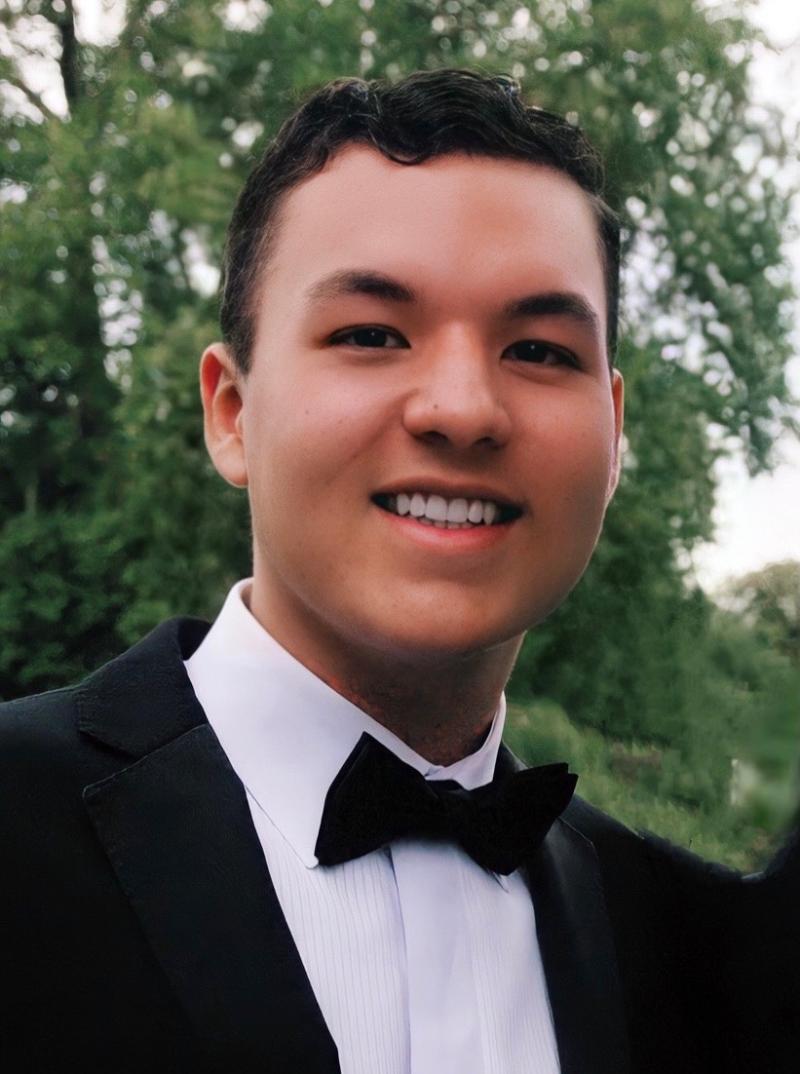
New PREP program to prepare underrepresented-in-medicine students for careers in biomedical research
Throughout his academic career, Matthew Lacayo has always had a diverse set of interests. As an undergraduate, he majored in chemistry and math, and took electives in quantum mechanics. However, a medical relief trip to Honduras during his sophomore year convinced Lacayo to pursue a medical degree rather than a doctorate after graduating. To prepare himself for this new direction, he entered the Duke University School of Medicine’s Master’s of Biomedical Science (MBS) program last year to bolster his background in anatomy, patient care, and human biological sciences.
The MBS program confirmed Lacayo’s passion for treating and helping patients, but his other interests continued to inform his work. Leonor Corsino, MD, MHS, co-director of the MBS program, and Leonard White, PhD, associate professor of neurology and neurobiology, connected him with the Brain Tool Laboratory, where members of the Department of Neurosurgery and the Pratt School of Engineering work together to tackle some of the most difficult problems facing the surgical community.
“The Brain Tool Lab was a perfect fit for my work. It’s been so exciting to see that my backgrounds in math and chemistry could actually be paired with and complement my current medical route,” Lacayo said.
Lacayo decided that he wanted to pursue his own research interests while treating patients as a clinician scientist. These clinicians combine their medical training, and usually clinical care, with their own independent scientific research. These dual roles complement and inform one another, giving clinician scientists a critical role in academic medicine.
This summer, Lacayo will be one of two inaugural students in the Duke Postbaccalaureate Research Education Program (Duke PREP), a new program that will train and prepare students from underrepresented backgrounds to pursue doctorates and careers in biomedical sciences. Lacayo will be joined by Dantae King, a graduating senior from North Carolina Central University with interests in toxicology, pharmacology, and cell biology.
“Matthew and Dante both have enormous potential and interest in careers as clinician scientists, and are a perfect fit for the first PREP class,” said Corsino, who cofounded PREP along with Kathryn Andolsek, MD, PhD, and Gowthami Arepally, MD, thanks in large part to funding from Chancellor A. Eugene Washington, MD, and support from Dean Mary Klotman, MD.
Duke PREP is geared toward graduates of the Duke MBS program or with undergraduate degrees who are interested in pursuing a doctorate as well as their careers in biomedical sciences. Students in Duke PREP will spend 75 percent of their time performing hands-on research, and 25 percent of their time in didactic coursework. They will also receive mentoring and guidance from faculty within the School of Medicine, as well as current and recent graduates of the MBS program.
Corsino sees Duke PREP as part of a much-needed effort to help diversify biomedical research. Persons of color--particularly those who are Black, Latino, or Native American--continue to be underrepresented as faculty and students in healthcare research and academic medicine. In addition to helping bring more students from underrepresented groups into this field, PREP will also provide mentors and networking to its graduates as they continue their studies and careers.
Lacayo hopes that his career will allow him to help patients both directly through his care as well as through his research. “I love the connection of meeting with patients, and I love the prospect of conducting my own lab work. I’m honored to be part of the first PREP class,” he said.